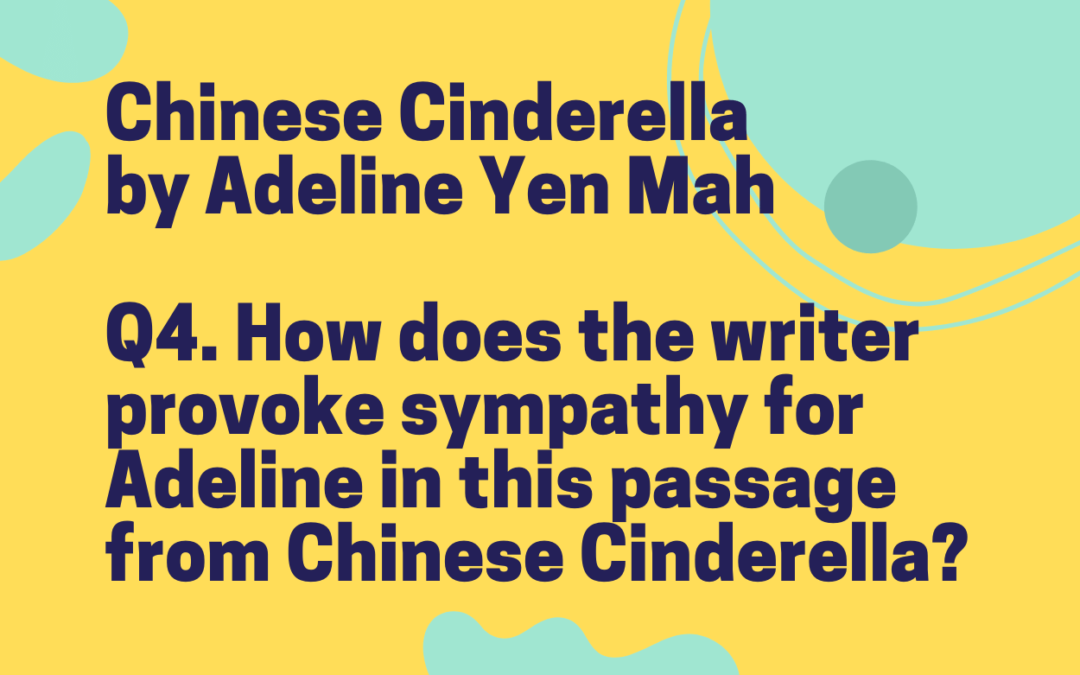Edexcel English IGCSE: Chinese Cinderella
by Adeline Yen Mah
Q4. How does the writer provoke sympathy for Adeline in this passage from Chinese Cinderella?
Edexcel English IGCSE Model Essay by an Expert
It is clear from this passage that Adeline has a difficult life. She has a tense relationship with her family and little control over her future.
Adeline’s reluctance to leave school evokes sympathy, as the reader wonders about the cause of this fear. The reader quickly realises that Adeline’s dread about leaving school is not simply because she loves education. She uses a simile comparing the thought of leaving school to “a persistent toothache”, suggesting that it is like a physical pain which she cannot ignore. The repeated time phrases in the opening paragraph also show that she is preoccupied with the idea of leaving, even though the end of term is months away. Her fears are realised when she is instructed to go home. She describes her reaction with a repeated structure which shows the overwhelming nature of her emotions: she was “full of foreboding” and “full of dread”. The reader pities her because it is sad that a young person should be so worried about going home.
More pitiful information about Adeline’s relationship with her family is revealed when she arrives home. Tragically, she does not recognise her own ‘home’, because her parents have moved house. The insensitivity of the chauffeur, who reacts to her pitiful confusion with the rude question, “Don’t you know anything?”, evokes further sympathy for Adeline. The house is “quiet and cool”, reflecting the family’s reactions to Adeline. The fact that nobody has come to greet her shows that they do not care about her; the reader is particularly shocked to learn that her family are not busy, but “playing bridge” and “sunbathing”, showing that they could have come to greet her if they wanted to. Adeline clearly lacks warm family relationships.
The reader also pities Adeline for the lack of control she has over her future, due to her cruel and dominating father. Adeline’s use of repeated questions, such as “Dare I let my guard down?” and “Is it possible?” are a pathetic revelation of her lack of self-confidence and suspicion of her own father. The short sentences used to describe her father’s reaction to her winning the competition – “He looked radiant. For once, he was proud of me.” – reflect her amazement and disbelief that her father is finally giving her approval. His reaction to her ambition to become a writer also makes the reader sympathise with Adeline; he asks her cruel questions, encouraging her to doubt her writing abilities. He then tells that she “will” become an obstetrician, giving her little choice in her future career.
There is dramatic irony in the fact that the reader knows that Adeline does become a successful writer. The reader pities Adeline in the passage, but also admires her for finally achieving her ambition.



